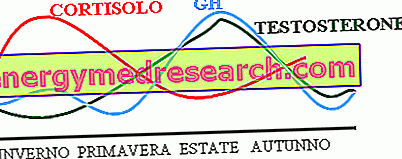
PLEASE NOTE: MEDICINAL PRODUCT IS NO LONGER AUTHORIZED
What is TESLASCAN?
TESLASCAN is a solution for intravenous infusion (drip into a vein) containing the active substance mangafodipir trisodium.
What is TESLASCAN used for?
TESLASCAN is intended for diagnostic use only. TESLASCAN is used in patients who must undergo magnetic resonance imaging (MRI) to detect liver lesions that could be caused by liver cancer or metastasis (migration of tumor cells from a main outbreak). TESLASCAN is a "contrast medium" used to obtain sharper images. TESLASCAN can also be used in combination with MRI to assist in the investigation of pancreatic lesions.
The medicine can only be obtained with a prescription.
How is TESLASCAN used?
TESLASCAN is for single intravenous administration at a dose of 0.5 ml per kilogram of body weight. The infusion rate is 2-3 ml / min for liver diagnostic examination and 4-6 ml / min for pancreatic diagnostic examination. The intensification of the contrast is observed after 15-20 minutes from the start of the infusion and is maintained for about 4 hours. For more information, see the package leaflet.
How does TESLASCAN work?
The active substance in TESLASCAN, mangafodipir, contains manganese, a chemical element of the metal group. Manganese is used as a contrast agent to obtain better images with magnetic resonance diagnostic devices. MRI is an imaging technique that uses magnetic fields and radio waves. The water molecules in the body are sensitive to magnetic fields and produce a certain signal when radio waves are emitted. Manganese interacts with water molecules. As a result of this interaction, water molecules transmit a stronger signal, which allows for a sharper image.
In TESLASCAN manganese is bound to another chemical to form a "chelate". After the injection of the medicine, the manganese is released into the blood and absorbed by the normal tissues of the liver and pancreas more effectively than the tumor cells. In this way it is possible to detect the difference between normal fabric and diseased tissue.
What studies have been carried out on TESLASCAN?
TESLASCAN studies in MRI for liver lesions were conducted on 617 patients. Patients showed one to five hepatic lesions already identified with MRI, ultrasound or computed tomography (CT). An optimized MRI scan with TESLASCAN was performed on these patients. The main measure of effectiveness was the difference in the number of hepatic lesions detected thanks to the use of TESLASCAN with MRI compared to the previous scan.
Studies for pancreatic disease were conducted on 292 patients and compared the effectiveness of MRI optimized with TESLASCAN compared to "spiral CT", another diagnostic method used for the detection of pancreatic lesions. The main measure of effectiveness was based on the agreement between the diagnosis based on the scans and the actual lesions found during surgery or a biopsy.
What benefit has TESLASCAN shown during the studies?
Regarding liver lesions, the use of MRI with TESLASCAN allowed the identification of more lesions. Overall, more lesions were detected in 33% of patients during the studies; however, less lesions have been detected in 20% of patients. As regards pancreatic lesions, the MRI optimized with TESLASCAN proved more effective than the spiral CT scan.
What is the risk associated with TESLASCAN?
The most frequently reported side effects with TELESCAN (seen between 1 and 10 patients in 100) are headache, nausea, redness and a feeling of warmth. For the full list of all side effects reported with TESLASCAN, see the Package Leaflet.
TESLASCAN should not be used in people who may be hypersensitive (allergic) to mangafodipir trisodium or any of the other substances. TESLASCAN should not be used in pregnant or lactating women, in patients with pheochromocytoma (a tumor of the adrenal glands) or in patients with severe disorders of the liver or kidneys.
Why has TESLASCAN been approved?
The Committee for Medicinal Products for Human Use (CHMP) decided that the benefits of TESLASCAN outweigh its risks when used as a contrast agent for magnetic resonance diagnostics (MRI), for the detection of liver lesions presumably due to disease metastatic or hepatocellular carcinoma, as well as in addition to MRI to assist in the investigation of focal pancreatic lesions. The Committee therefore recommended that the product be granted marketing authorization.
More information on TESLASCAN
The European Commission granted a marketing authorization valid throughout the European Union for TESLASCAN to GE Healthcare AS on 22 May 1997. The marketing authorization was renewed on 22 May 2002 and 22 May 2007.
The full EPAR for TESLASCAN can be found here.
Last update of this summary: 04-2007.



